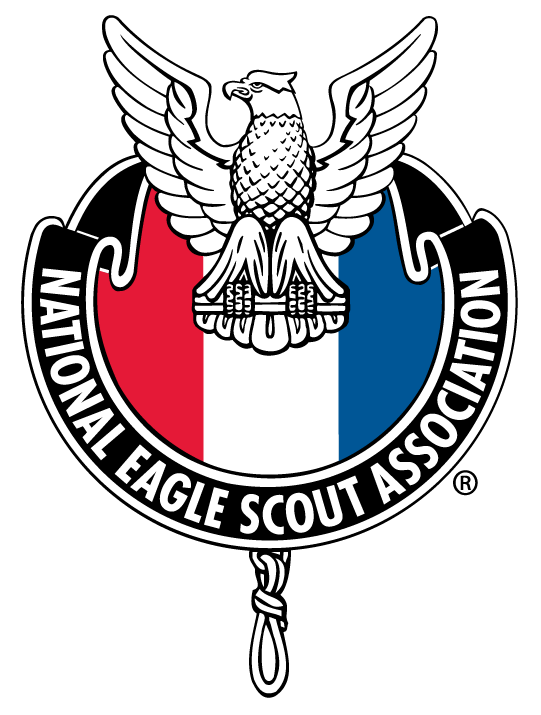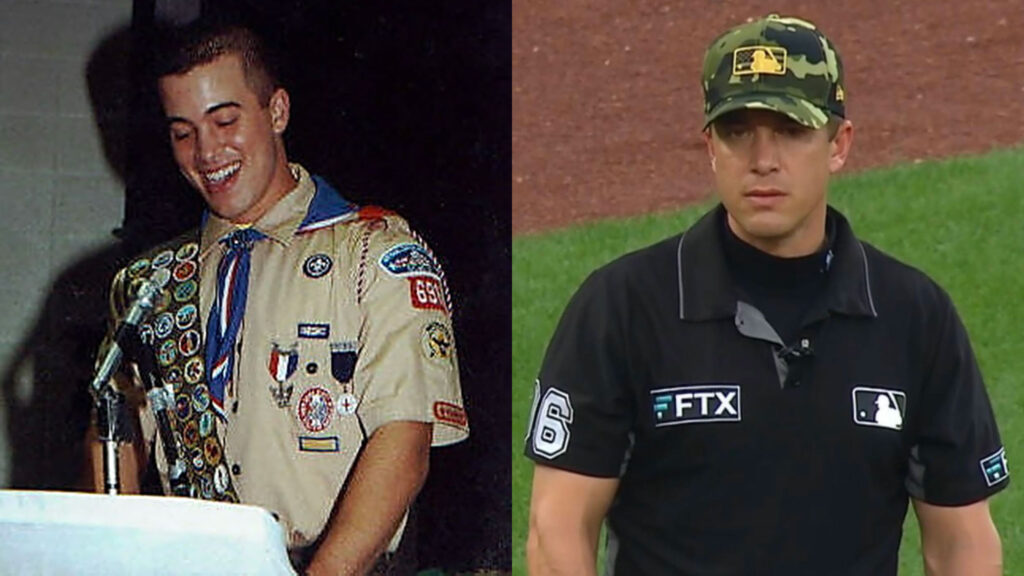It takes specialized training and years of officiating minor league games before an umpire gets a shot in Major League Baseball. For Reston, Virginia Eagle Scout Chris Segal (2000), the skills he learned in Scouting set him apart and landed him a coveted spot in the Majors. Ultimately, it comes down to a love of the game, integrity, hard work, and strong people skills.
“Being a Scout helped to shape the person I am now, in the sense that it taught me skills I’ve been able to use—mentally dealing with adversity, managing and taking charge of situations, and leading on the field,” Chris said. “Let’s face it: someone needs to be in charge of a game, and there has to be a leader. If you’re timid as an umpire, it won’t work.”
Scouting teaches communication, teamwork, problem-solving, time management, and critical thinking—necessary skills Chris uses each day in his work. When asked how Scouting prepared him to make the tough calls, Chris was quick to respond.
“Umpires work as a team, just like players. And this is a multimillion-dollar baseball game. It’s very important to work together, not as individuals,” Chris explained. “There are 76 of us on the major league (umpiring) staff. Throughout my career, I’ve met countless people and have had to be teammates—not just with other umpires but with the players, coaches, general managers, etc.”
A first-generation Scout and member of Troop 698 with the National Capital Area Council, Chris received his Eagle Scout award May 4, 2000.
“Initially, for my project, I tried to do something related to baseball, but that changed for various reasons.” He chuckled. “Now that I think about it, I guess what I did for my Eagle project eventually did come around full circle to baseball.
“I led my troop in collecting children’s books. We used cassette tapes. Remember those? We had Scouts read the books on tape. Then we submitted each book and its tape in individual plastic bags to the Children’s National Medical Center in Washington, D.C.
“The reason it’s related to baseball is that we have a professional umpiring charitable organization known as Umps Care. We raise money throughout the year. One of our goals is to bring Build-a-Bear to children in the hospitals.” Chris and another umpire host a golf tournament for Umps Care to fund a visit each year to Children’s National Medical Center.
Was it difficult balancing the demands of baseball and Scouting, especially while he was on the trail to Eagle? “I don’t think so,” Chris insists. “In fact, one of my first memories is when I was in Little League, in Fall baseball, and I was on a camping trip with the Cub Scouts. It was a local trip. I left during the day to play baseball in the early afternoon and then came back to camp. I hit my first home run in that game!”
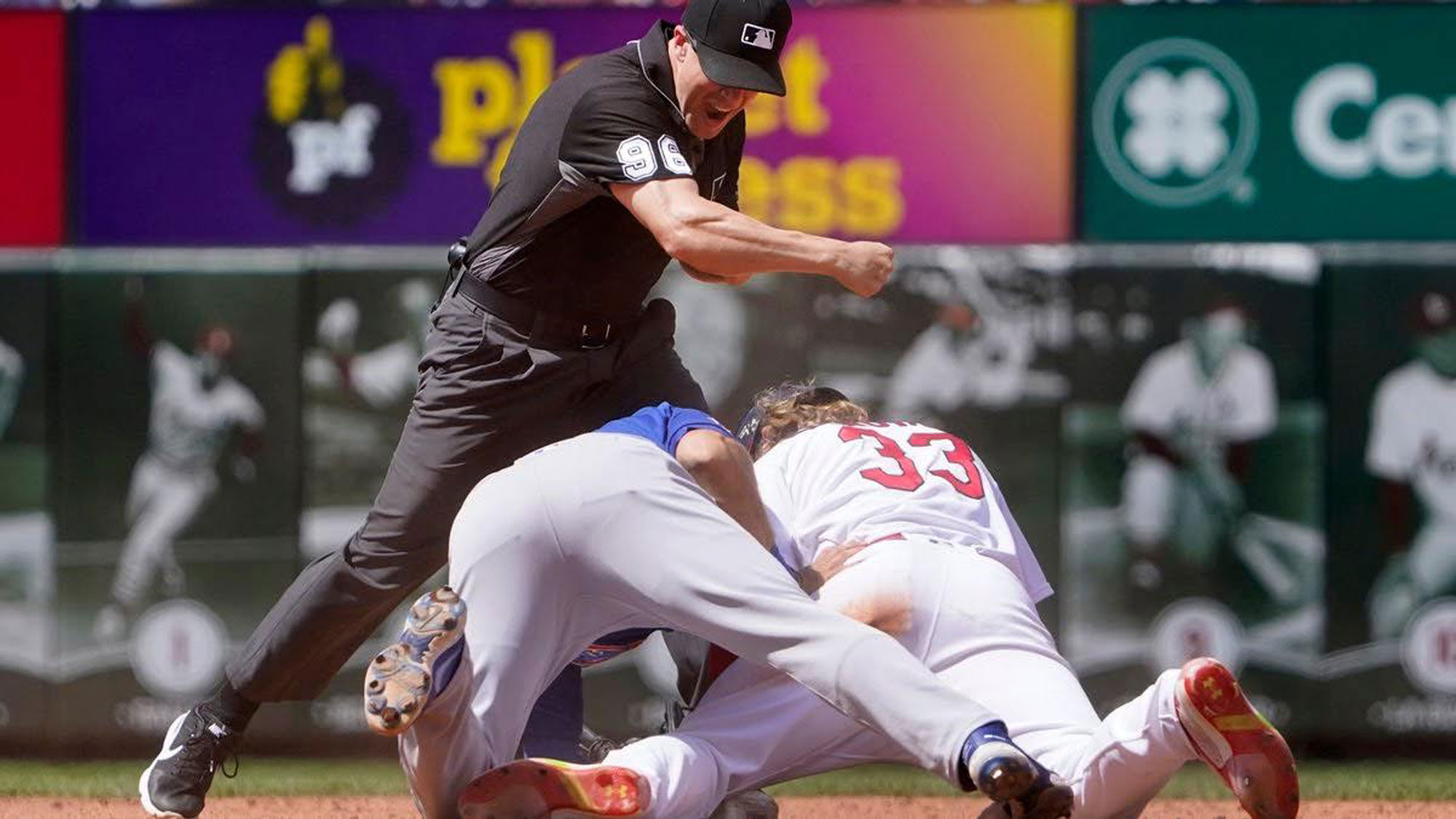
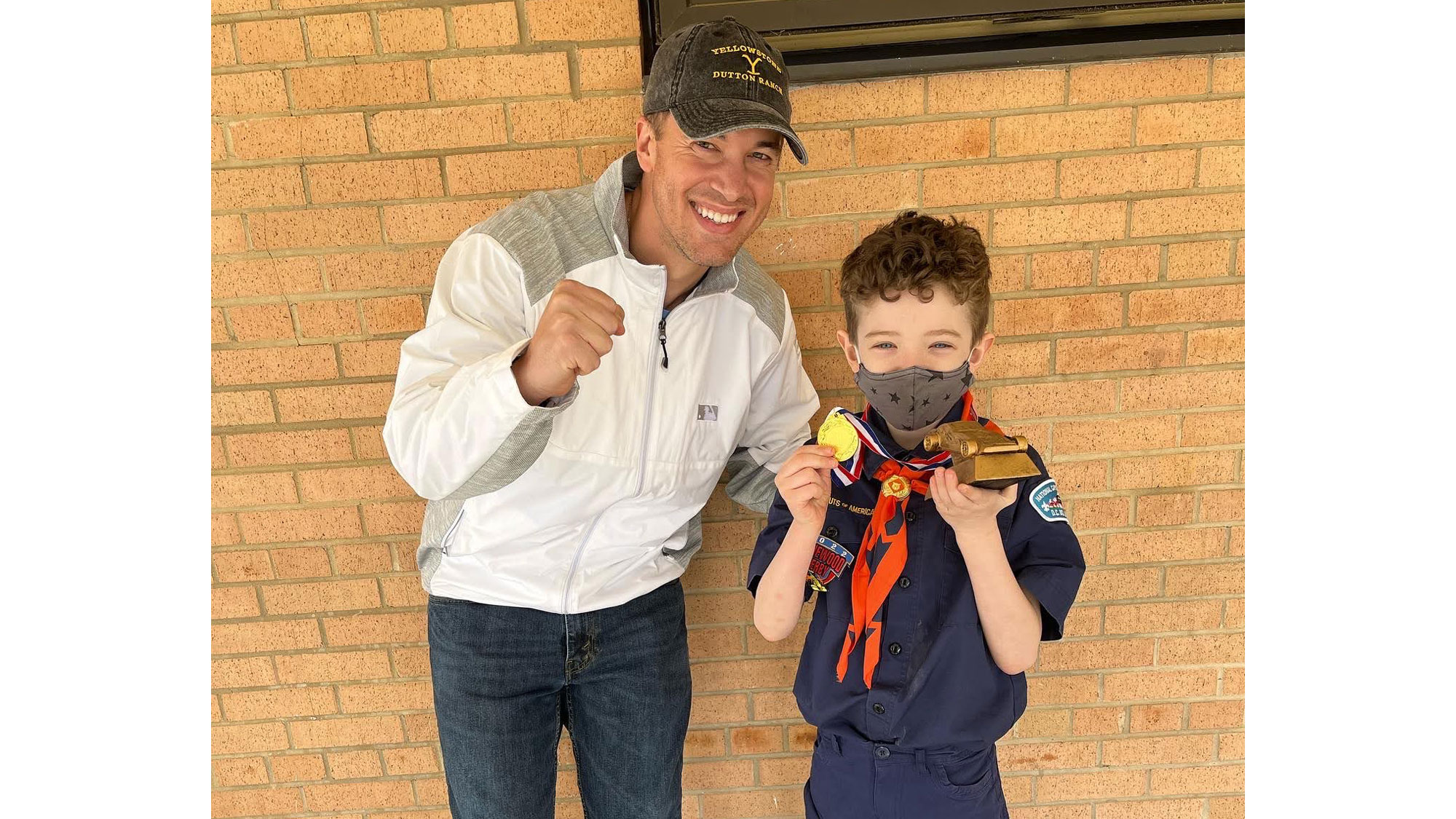
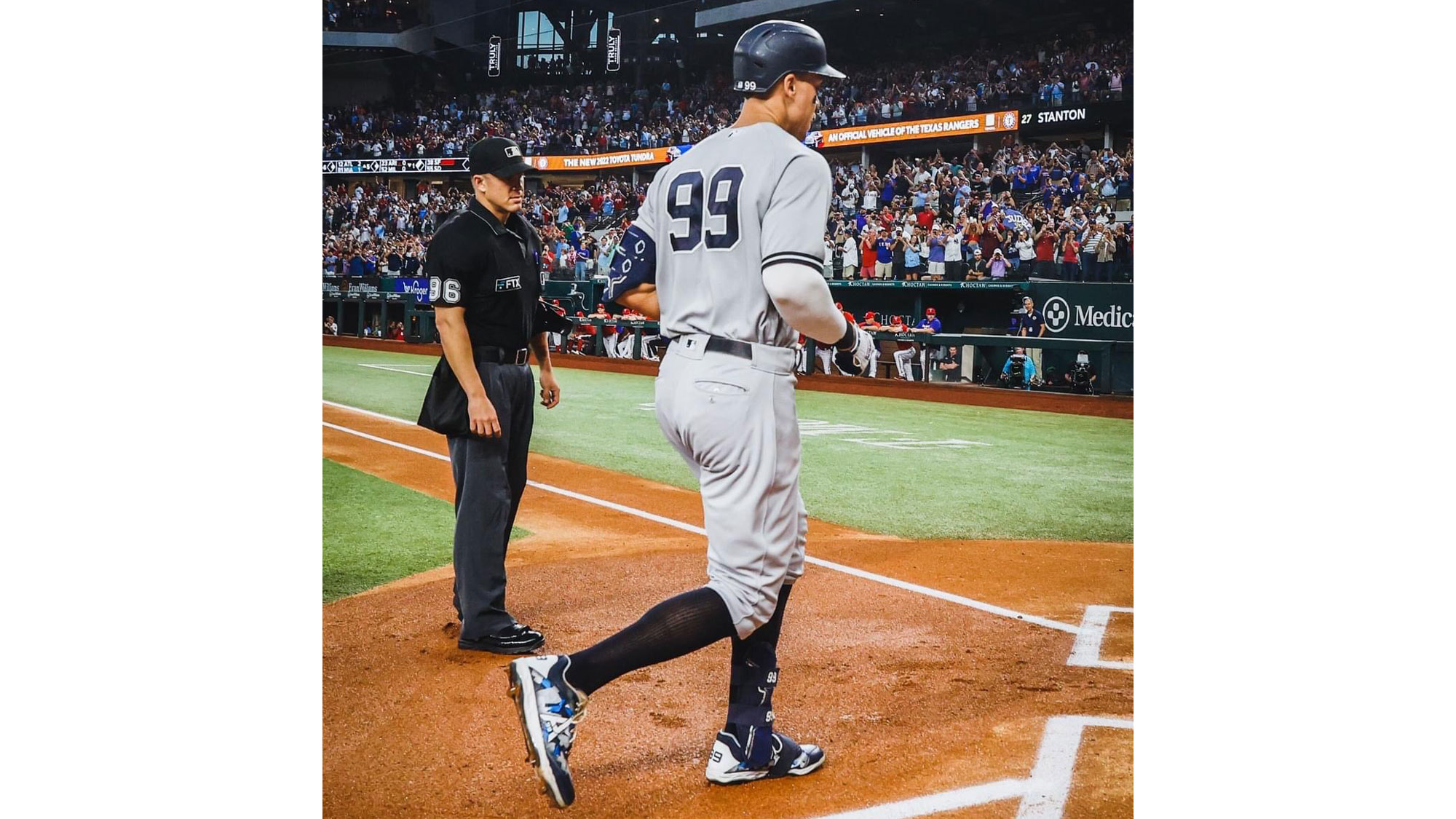
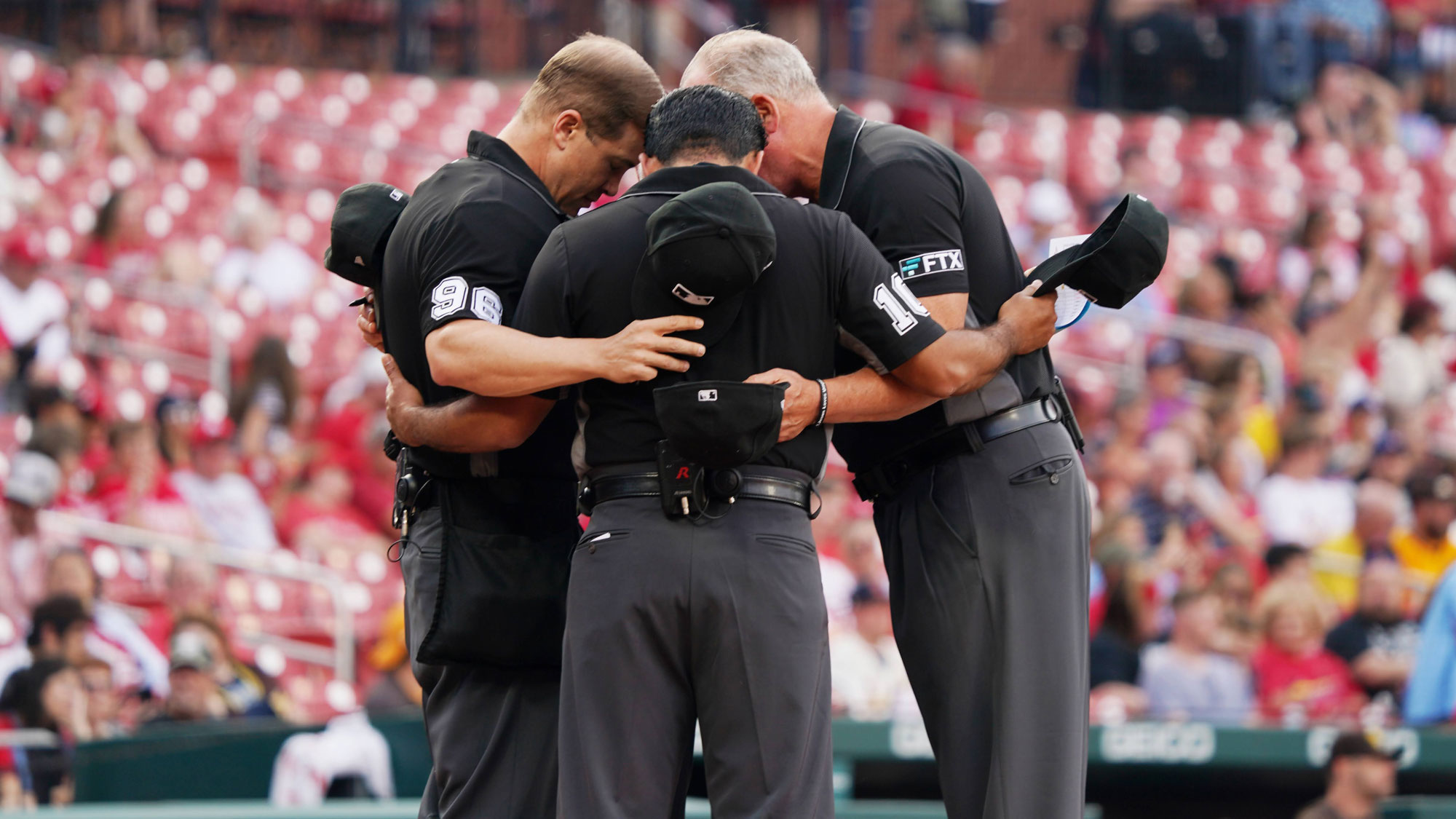
While in high school, Chris began umpiring for West Springfield Little League in Northern Virginia. After graduating from Lake Braddock Secondary School, he earned a degree in English Literature from St. Mary’s College of Maryland, where he also played baseball. While in college, he began umpiring for extra cash.
With such a love of baseball, Chris was determined to give a career in umpiring his best shot. Although the entry point to becoming an umpire is open to anyone, training opportunities are limited.
After a five-week program, he began umpiring in the minor leagues in 2006, working his way “up the funnel” to the big leagues. Umpire turnover is high in the minor leagues. He said this trial process of moving up levels is rather like being on a glorified “American Idol” program—trying not to be the one kicked off the show.
In addition to umpiring for minor league games, he worked more than 650 games in the Major Leagues as a call-up umpire. He also regularly umpired during Major League Spring Trainings.
“The Minor leagues have changed over the years,” he explained.
It took patience and perseverance, but Chris kept his eye on the ball and made his major league debut in 2014 as number 96.
On average, it takes about 10 years for an umpire to move from the minor leagues to the Majors—twice the amount of time it takes a new player. Umpires are considered for the Majors after they reach Triple-A status. There are only 76 permanent spots for umpires in the major leagues, and there is very little turnover.
While it is the baseball players who typically receive star attention from fans and the media, without umpires, there would be chaos. It is the umpires who officiate each game, starting and ending play, and enforcing the rules. Umpiring requires a detailed knowledge of the game. Even so, not everyone is happy with an umpire’s call, as Chris can attest.
“The biggest thing on the field, if we’re speaking of Scout law, is bravery. You have to be brave in this job, to be in a city where a call goes against the home team. You have to be willing to deal with the consequences. You can’t be fearful. Courage and bravery and integrity are huge in umpiring.”
Chris has had some memorable experiences over the years.
He was the home plate umpire on July 30, 2017, when Texas Rangers third baseman Adrian Beltre got his 3,000th career hit against the Baltimore Orioles.
On September 13, 2020, Chris was the home plate umpire for a no-hitter thrown by Alec Mills of the Chicago Cubs against the Milwaukee Brewers.
In 2022, he was the home plate umpire when New York Yankees right field Aaron Judge hit his 62nd homerun.
Perhaps one of his favorite memories was from a couple years ago at Oriole Park in Baltimore. Growing up, Chris played wiffle ball and other games with a select few friends from his street. One of those friends, Kevin Maloney, now plays trumpet for the US Army Band. When his crew walked on the field that day and stood at home plate for that national anthem, Chris was surprised to discover that Kevin and several of his band mates would be standing just feet away from them playing the National Anthem before that game.
When he isn’t umpiring for Major League Baseball, Chris is an instructor with Mid-Atlantic Officials. He is also a proud dog dad to Bailee and Ben.
What is one of his favorite stories about being an umpire? “The first game I ever worked in 2006 was in Danville, Virginia. Before the game, we go over the ground rules with everyone. In Danville, they have a solid wood fence, and there was an ad on the fence in right field for Chik-Fil-A. The images of the cows went above the top of the fence on either side of the ad, so we had to clarify that the ball had to clear the cows in right field to be a home run!”
What is the best thing about being an MLB umpire? For Chris, it is simply being around the game he has loved for so long. “Baseball is a major part of my life. I’ve had as much fun as a player and now as an umpire, talking to people I’d never get to talk to, and going to cities everywhere.”
Chris has been to every big-league stadium. “I used to be one of those people who would claw to get a baseball at a game. Then in the minor leagues, we rubbed each of the coveted baseballs with mud before each game to improve the grip. It’s such a big deal. It’s cool to be part of it. It’s a great game. There have been a lot of great people I’ve had a chance to know.”
Now, he is getting his foot back in the door to Scouting. His godson, Thomas, age nine, is a Scout. “I helped him with Pinewood Derby. He ended up going to State,” Chris said proudly.
In Scouting, as in life, one never knows when a skill once learned will be needed again.
